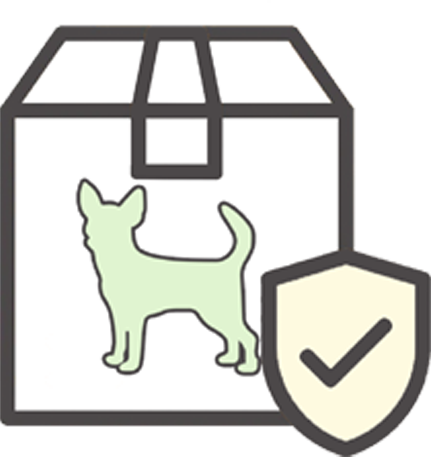Post-Surgery Tips for Dogs
Updated On: Friday, November 15, 2024 10:35:24 AM America/Los_Angeles
Having your fur baby go through a major medical procedure can be scary and nerve-wracking. Though it may be impossible to be entirely worry-free post-surgery, there are ways to make the process a smoother one for you and your pup. Below are some tips for helping your dog and yourself during a stressful time.
Photo by Priscilla Du Preez
Ask Questions
A common mistake that pet parents make at the vet is not asking enough questions. And we get it -- it’s hard not to be distracted by your pooch and making sure they’re feeling safe and comfy. However, gathering all relevant info at the vet will both help you feel more reassured about the recovery process and how to handle any issues should they arise. Make sure to ask about medication dosages, side effects, follow-up appointments, wound/incision care, and so on.
Prepare Your Home for Recovery
Prepare everything well before you bring your fur baby home so they don’t come home to chaos. The last thing you want to be struggling with is putting together a ramp or deciding where to put a pet potty when your dog will need you the most. Ideally, any home adjustments will have been set up beforehand so that you can bring your pup home to a calm environment where they can focus on recovery.
Create a Calming Environment
While humans can be told what surgery will entail and be informed of medication side effects, dogs aren’t afforded the same luxury. For canines, the onslaught of new and uncomfortable sensations seems sudden and can even lead to anxiety. Favorite bedding, familiar scents (found in their preferred toys, your clothing, etc.), and most of all a calm owner, are all ways to help them feel right at home after a disorienting event.
Provide an Indoor Dog Bathroom
Having an easily accessible pee pad like DoggieLawn can be incredibly helpful for pups who may be less mobile after a surgery. Immobility or decreased mobility isn’t the only reason for utilizing disposable wee wee pads, however. Chances are your furry one will be on some kind of medication, and common prescriptions like antibiotics are known to cause upset stomachs. Making sure there are plenty of potty options reduces the chances of your dog having an accident on your floors.
Get Extra Support
Having a family member (aka your fur baby) going through surgery is stressful for you, too. Enlist a partner’s help or have extra professional guidance to support you through the process. If more round-the-clock access to a vet is what will help put you at ease, consider signing up for a telehealth vet service for any questions or concerns you face during the recovery process.
You may not be a veterinarian, but that doesn’t mean there aren’t ways to help your dog post-surgery. Studies show that patient comfort improves health outcomes. While your vet can handle the medical components, it’s up to paw-rents to provide a safe and comforting environment for their pets. Preparation is key to making this possible for your precious pup and ensuring that they can return to a happy, healthy life ASAP.


